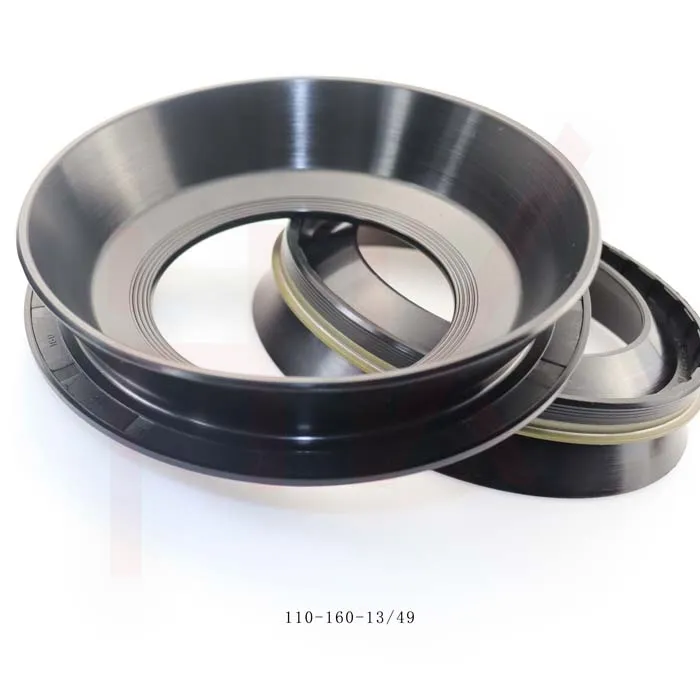Aug . 28, 2024 16:50 Back to list
skeleton oil seal
Understanding Skeleton Oil Seals A Comprehensive Overview
Skeleton oil seals, also known as skeleton seals or simply oil seals, play a crucial role in various mechanical systems. These seals are designed to prevent the leakage of lubricants and to exclude contaminants from entering the machinery, ensuring optimal performance and longevity. This article will delve into the structure, function, types, and applications of skeleton oil seals, emphasizing their importance in various industries.
Structure and Composition
A skeleton oil seal typically consists of three main components the elastomeric seal body, the metal casing, and the spring. The seal body, made from durable elastomeric materials such as Nitrile Rubber or Fluoro Rubber, provides flexibility and resilience. The metal casing, which supports the seal, contributes to its structural integrity. The spring, usually a garter spring, exerts a constant radial force on the seal lip, ensuring a tight fit against the surface it seals.
The design of skeleton oil seals allows them to maintain effective sealing under various conditions. The interlocking of the spring and seal lip creates a reliable barrier against fluids, thereby minimizing leaks and enhancing the performance of the equipment.
Functionality
The primary function of skeleton oil seals is to prevent the escape of lubricants from machinery while also inhibiting the ingress of contaminants such as dust, dirt, and moisture. This dual action is essential for maintaining the efficiency and reliability of mechanical systems. The presence of lubricants in machines helps reduce friction, heat generation, and wear between moving parts. Without effective sealing, these lubricants could leak, leading to increased wear and potential system failures.
In addition to sealing, skeleton oil seals can also accommodate minor misalignments and variations in system pressure, enhancing their adaptability in dynamic environments. This capability is particularly useful in applications where components may experience significant movement or thermal expansion.
Types of Skeleton Oil Seals
skeleton oil seal

Skeleton oil seals come in various types, tailored to meet specific operational requirements. These include
1. Single Lip Seals Typically used in low-pressure applications, these are the most common types and are generally easier to install.
2. Double Lip Seals Designed for higher pressure applications, these seals provide additional protection against contamination, making them ideal for rugged environments.
3. Metal-Case Seals These seals offer enhanced durability and are often used in heavy machinery and automotive applications.
4. Spring-Loaded Seals Featuring integrated springs, these provide a more robust sealing solution suitable for high-speed applications.
Applications
Skeleton oil seals are widely used across various industries, including automotive, aerospace, manufacturing, and oil and gas. In automotive engineering, they are vital in engines, gearboxes, and differential assemblies. In aerospace, they help ensure the reliable operation of pumps and actuators. In manufacturing and oil extraction, these seals are crucial for preventing leaks and maintaining equipment efficiency.
Conclusion
In summary, skeleton oil seals are indispensable components in modern mechanical systems. Their ability to effectively seal lubricants while blocking contaminants is vital for ensuring the performance and durability of machinery across multiple industries. As technology continues to evolve, the designs and materials used for oil seals will likely advance, further enhancing their efficacy and applications in a rapidly changing industrial landscape.
-
TCN Oil Seal Metal Ring Reinforcement for Heavy Machinery
NewsJul.25,2025
-
Rotary Lip Seal Spring-Loaded Design for High-Speed Applications
NewsJul.25,2025
-
Hydraulic Cylinder Seals Polyurethane Material for High-Impact Jobs
NewsJul.25,2025
-
High Pressure Oil Seal Polyurethane Coating Wear Resistance
NewsJul.25,2025
-
Dust Proof Seal Double Lip Design for Construction Equipment
NewsJul.25,2025
-
Hub Seal Polyurethane Wear Resistance in Agricultural Vehicles
NewsJul.25,2025
-
The Trans-formative Journey of Wheel Hub Oil Seals
NewsJun.06,2025
Products categories
















